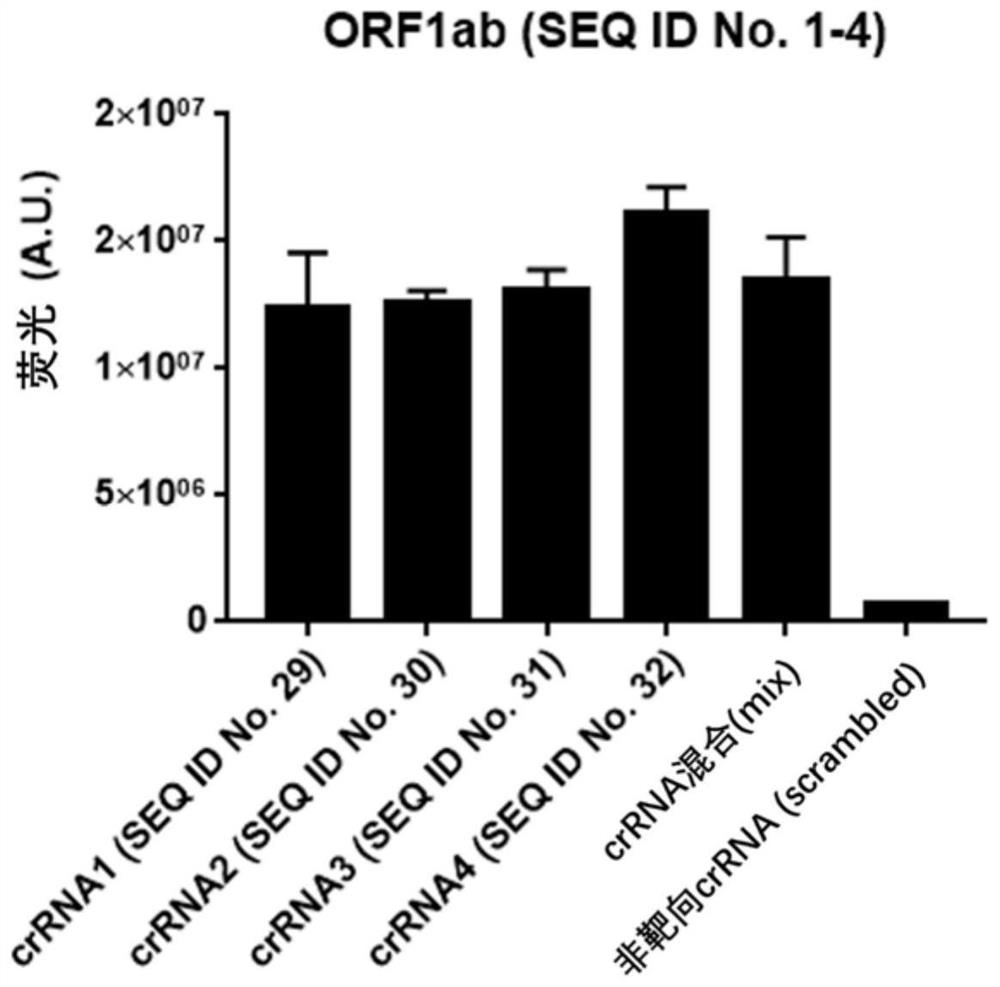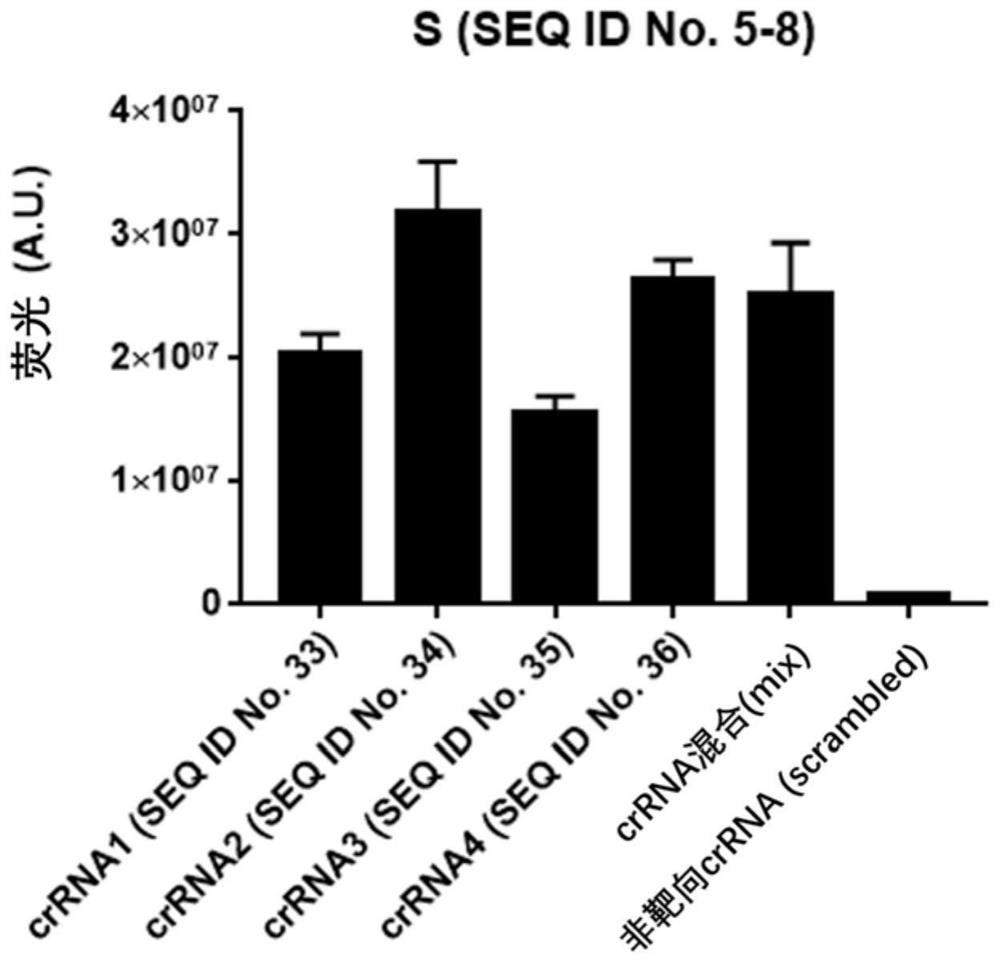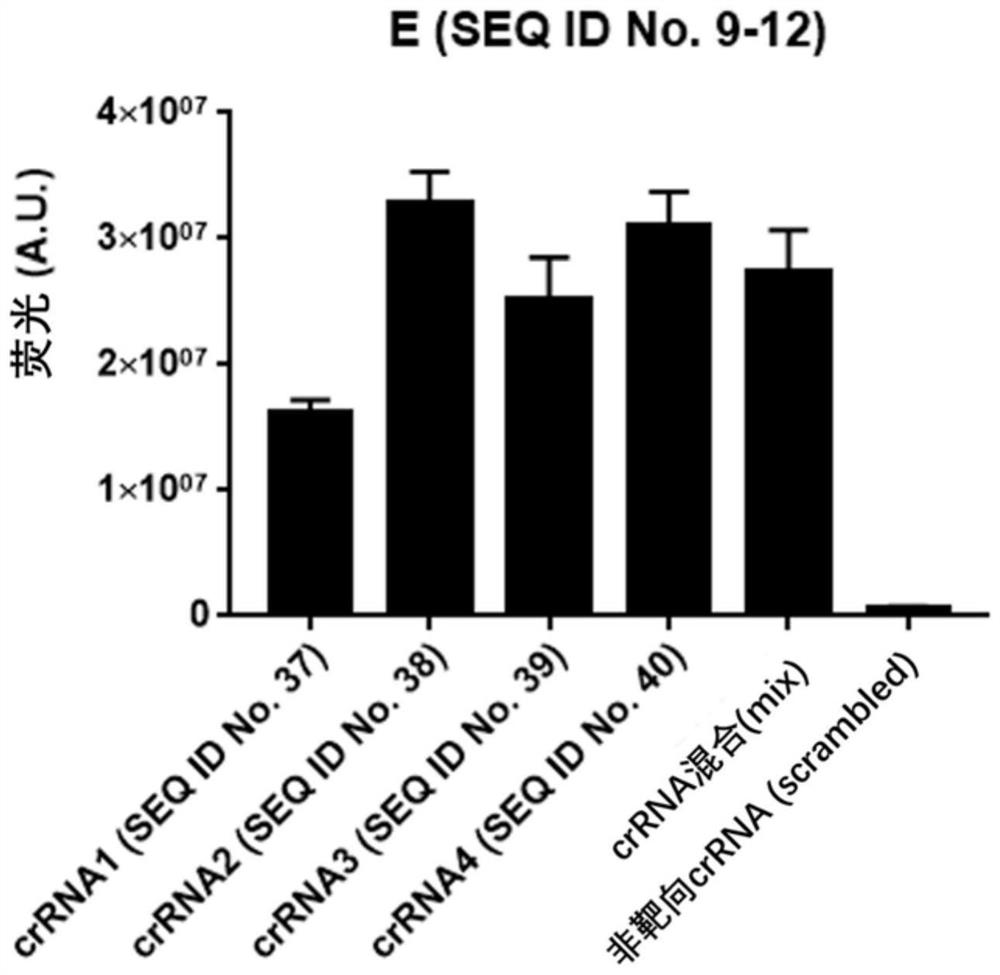Kit for detecting nucleic acid of respiratory tract pathogen, detection method and application
A technology of respiratory tract and kit, applied in the biological field, can solve the problems of relying on large-scale instruments and inconvenient detection.
- Summary
- Abstract
- Description
- Claims
- Application Information
AI Technical Summary
Problems solved by technology
Method used
Image
Examples
Embodiment 1
[0112] 1. Expression and purification of Cas12a protein
[0113] The Cas12a (LbCas12a, amino acid sequence shown in SEQID NO:57) gene of Lachnospiraceae bacterium ND2006 origin passes through after codon optimization (optimized sequence is shown in SEQ ID NO:102), connects into pET28a plasmid (Thermo Fisher Scientific, Massachusetts , USA), protein expression was regulated by the T7 promoter. The C-terminus of LbCas12a contains a His6 tag for affinity purification, and a TEV restriction site is inserted between the Cas12a and His6 sequences. The resulting recombinant plasmid (hereinafter referred to as pET28a-LbCas12a) was transformed into Escherichia coli BL21 (DE3) cells. The next day, the monoclonal cells were inoculated into Luria-Bertani (LB) medium containing 50 μg / mL kanamycin, and cultured with shaking at 37°C. in OD 600 When it reached 0.8, 1 mM isopropyl-β-D-1-thiogalactopyranoside (IPTG) was added to induce protein expression, and cultured at 37°C for 16 hours. ...
Embodiment 2
[0153] The results obtained when testing different types of samples are as follows: Figure 20 Shown, detection method is the same as embodiment 1. It can be seen from the figure that the crRNA and primer pairs in Example 1 can be detected for different sample types (including sputum supernatant, nasal swab, throat swab, sputum, anal swab, feces, etc.), and its detection high specificity and sensitivity.
Embodiment 3
[0154] Example 3 For the detection of each pathogen in samples derived from living tissue and containing multiple pathogens
[0155] Adenovirus serotype 5 (Ad5) encoding ACE2 was transfected into BALB / c mice by intranasal (IN); 5 days later, the new coronavirus was transfected into mice by intranasal, 1 To 7 days, samples were collected for virus titer and nucleic acid detection (the detection method was the same as in Example 1). The result is as Figure 21 As shown, it can be seen from the figure that in addition to detecting the new coronavirus (N and S genes), adenovirus can also be detected. It can be seen that the crRNA and primer pair in Example 1 can detect each pathogen in a sample containing multiple pathogens derived from living tissue.
PUM
 Login to View More
Login to View More Abstract
Description
Claims
Application Information
 Login to View More
Login to View More - R&D
- Intellectual Property
- Life Sciences
- Materials
- Tech Scout
- Unparalleled Data Quality
- Higher Quality Content
- 60% Fewer Hallucinations
Browse by: Latest US Patents, China's latest patents, Technical Efficacy Thesaurus, Application Domain, Technology Topic, Popular Technical Reports.
© 2025 PatSnap. All rights reserved.Legal|Privacy policy|Modern Slavery Act Transparency Statement|Sitemap|About US| Contact US: help@patsnap.com



